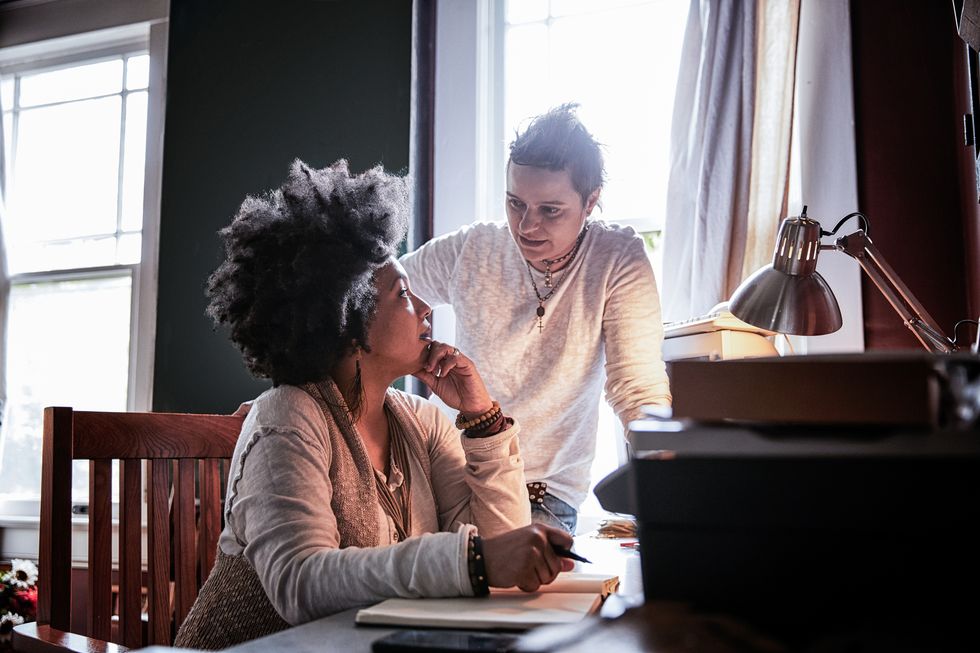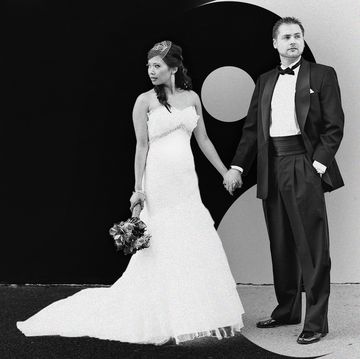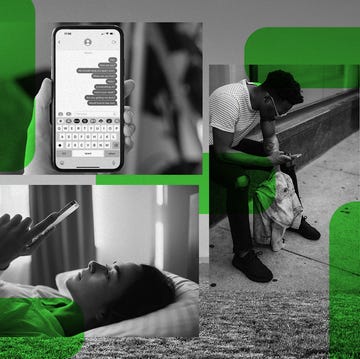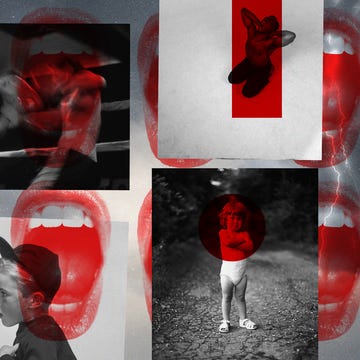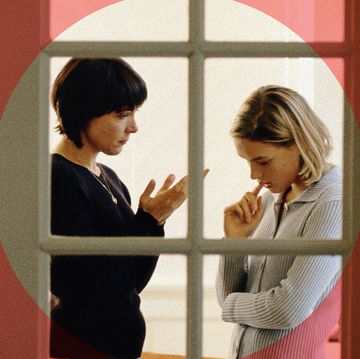Chynna Clayton spent more than two years working as one of Michelle Obama’s most trusted assistants until the secret Clayton had been keeping became too much to bear. Her father was incarcerated when she was a toddler. She’d been ashamed of it her whole life and told no one.
The weight of the secret intensified as Clayton’s success grew. What would people think if they found out? She felt she had to confess even if it could affect her job with the former first lady. “If anything, it only deepened my respect for her,” Obama writes in her latest book, The Light We Carry.
Everyone keeps secrets. Not all of them are whoppers. But keeping big secrets can have serious consequences for our well-being. It’s not just the fear of being found out, experts say, but also the loneliness and alienation that come from hiding something we consider shameful.
“Shame is what keeps things secret,” says Dale Larson, a professor of counseling psychology at Santa Clara University and a researcher who studies secrecy and self-concealment. “We seek connection, but we fear rejection.”
Shame, embarrassment, and self-protection are the top reasons people keep secrets, says Chris Davis, a psychology professor at Carleton University who studies the effects of secret-keeping on individuals and relationships. People are most likely to keep secrets about things like infidelity, addiction, behavior that may be stigmatized (like serving jail time or having an abortion), past trauma, and sexual orientation, according to Davis.
We weigh our secrets in terms of potential consequences for our lives and relationships. The higher the stakes, the more preoccupied we become. It’s this preoccupation, rumination, and fear of discovery that take a toll on mental health.
Who keeps secrets?
Some people are more prone than others to keep secrets. Larson calls them “self-concealers.” His research and clinical experience finds self-concealment — the predisposition to hide personal information one perceives as negative or distressing — most common among trauma survivors, people with perfectionistic tendencies, and those who lack a supportive social network.
“If you’re a highly perfectionistic person, you’re not going to let others know about your frailty because you want to be perfect,” Larson says, “and if you don’t have a network of close confidants, you can feel like, ‘I can’t talk about this’ or ‘People don’t want to hear about this.’”
Young adults may be particularly susceptible to self-concealment, particularly in the social media era. When it looks like everyone else has a perfect life, it can be hard to admit we’ve stumbled or suffered.
However, self-concealment is associated with negative health and relationship outcomes. It stunts psychological growth, Larson says, not only because of the resulting rumination, but because it prevents self-acceptance. The solution? Opening up.
“We have a zillion different support groups,” Larson says. “They’re all secret societies, right? You can go to one of these groups and get instant empathy. And you feel so good because you realize, ‘I’m not alone.’”
Confide or confess?
Columbia University professor Michael Slepian, author of The Secret Life of Secrets, distinguishes between confessing and confiding when it comes to secrets: Confessing is when you share the secret with the person you’re keeping it from. Confiding is telling someone — a therapist, friend, bartender, the person sitting next to you on a plane — a secret, and doing that can actually be beneficial.
“When we choose to be entirely alone with something, we often don’t develop healthy ways of thinking about that thing,” Slepian told Ali Wentworth on the Shondaland Audio podcast Go Ask Ali. Confiding in someone can also help us gain perspective if we’re considering confessing our secret. “What’s helpful about confiding is not just saying it out loud,” he added. “It’s not just releasing your secret out into the world. It’s that the person responds, and our research shows that people respond in helpful ways.”
Sharing a secret ultimately makes us feel less alone, and listeners are often much more understanding and supportive than we expect. “Talking about it with another person can just make the world of difference,” Slepian says, “because it turns out we need so little from other people to feel much better — and they have so much to offer.”
What’s the benefit of sharing?
Confessing raises the personal stakes, but it can also lead to better-than-anticipated outcomes and increased closeness, as in Clayton’s experience with Obama. “People tend to exaggerate the extent to which this secret is going to be damaging,” Davis says, “which is really unfortunate, because they’re ruminating on this thing.”
Davis’ research finds that when people confess a secret they’ve been keeping from a romantic partner, it often strengthens the relationship. (He notes, however, that none of the study participants confessed infidelity.)
“Some people say they broke up, but most people say it went better than they expected,” Davis explains. “We tend to find that, after confessing the secret, the relationship improves. The relationships have gotten deeper, more trusting. It makes perfect sense [because] we know that the way to build emotional intimacy with somebody is to disclose things about yourself.”
Sandy Cohen is a Southern California-based health and wellness coach, host of the Inner Peace to Go podcast, and writer of the monthly Shondaland series A Path to Well-Being. Follow her on Instagram @YouKnowSandy.
Get Shondaland directly in your inbox: SUBSCRIBE TODAY


